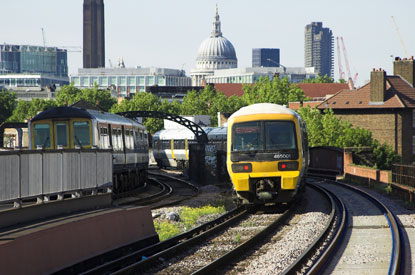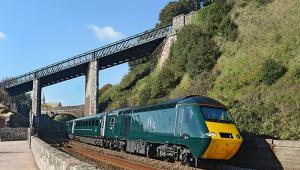By Nick Mann | 14 December 2011
The Department for Transport’s plans to cut tens of millions of pounds from its spending on road maintenance and rail may not be financially sustainable, the National Audit Office warned today.

In a report on the department’s cost reduction plans, the NAO said that there was a risk that plans to save £425m in the current Spending Review period by spending less on road maintenance could lead to deterioration in road quality. This could cost more in the long term, it said.
It also said the £298m the department expects to save in 2014/15 when it negotiates a new five-year grant settlement with Network Rail would depend on exactly what the outcome of those discussions is. The DfT could also lose out from rising rail revenues from rail fares increasing train operating company profits rather than being passed on to the government, the report added.
The DfT also lacks a full ‘strategic overview’ of how much its spending is becoming more cost-effective. A ‘light touch’ towards monitoring cost reductions by third parties such as Transport for London has contributed to a failure to ‘fully integrate’ financial and performance monitoring, the auditors said.
Because of this, the NAO said, the DfT was unable to guarantee whether its cost-reduction decisions will achieve value for money.
NAO head Amyas Morse said:
‘The Department for Transport was quick off the mark in preparing for the
spending review. However, while the department had elements of a
strategic vision, there was no real long-term plan for reducing costs
sustainably.
‘Securing good value for money in future will depend on the department’s
continuing to develop a longer-term approach to transport planning, based on a
full understanding of costs and value; and its further reforming the transport
system to operate effectively for less cost.’
The NAO said that the DfT should now put in place performance measures which give a better assessment of how it is progressing towards budget reduction goals.
It also said the department should take ‘more holistic’ view of all its work and how it might deliver its objectives at a lower cost, considering issues such as the balance between different modes of transport.
And it called for particular attention to the department’s relationship with Network Rail to make it easier to return savings made by the infrastructure provider to the department and to also introduce ‘more transparency’ over its costs and outputs.
A DfT spokeswoman welcomed the NAO’s ‘praise for the department preparation for the 2010 Spending Review’.
She added: ‘Since May 2010, the department has undertaken major consultations on High Speed 2, on reform of our railways and on aviation to ensure this country has the competitive transport infrastructure it needs to support long-term economic growth, and that is what we are determined to deliver.’





















